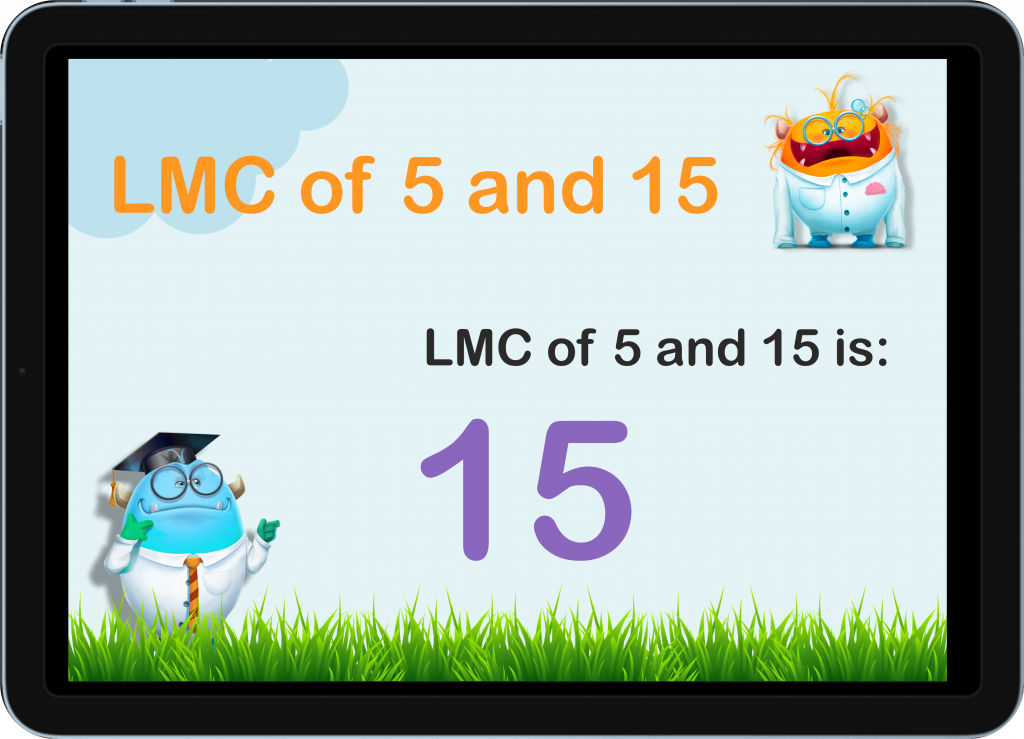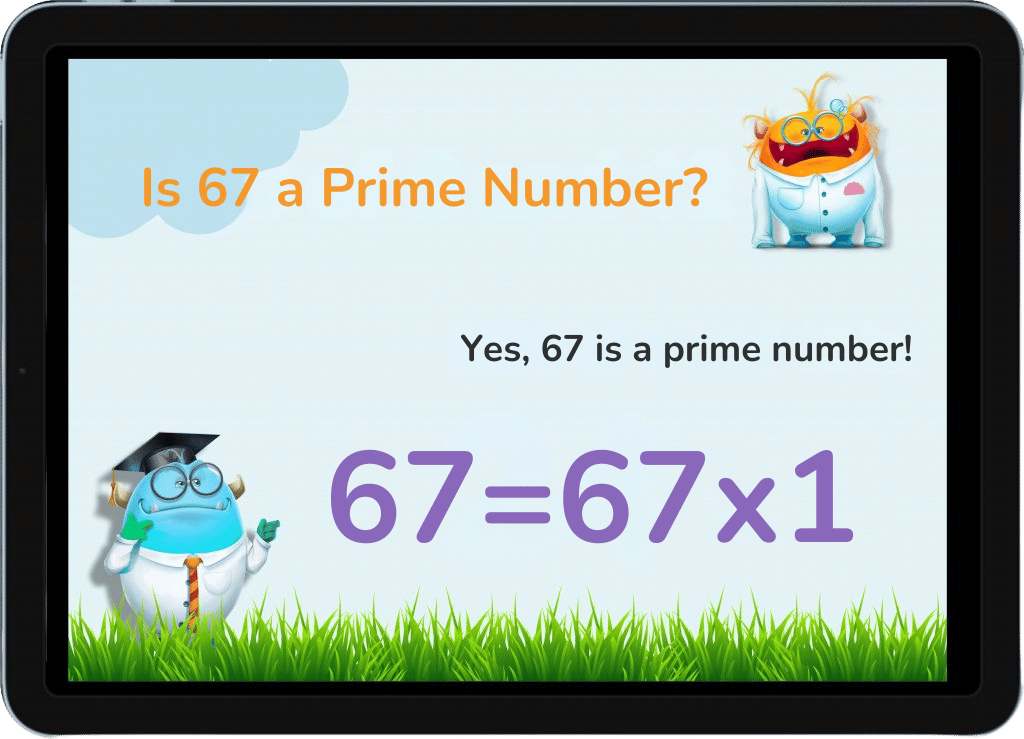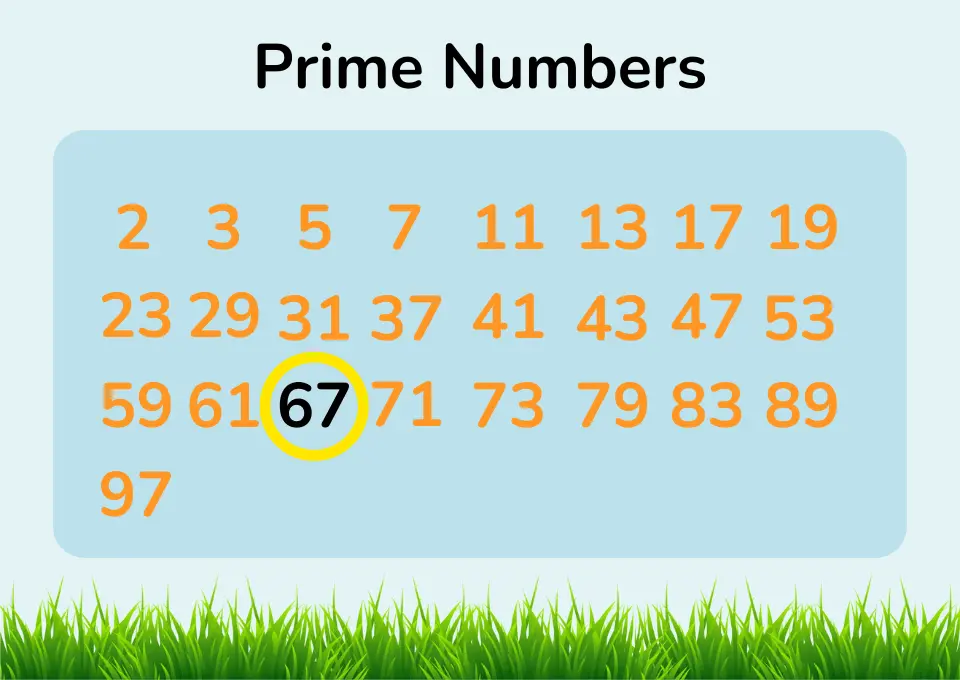Is 2 A Prime Number?
Prime vs. Composite Numbers
Greetings, young math enthusiasts! Today, let’s set sail on a mathematical voyage to determine if 2 is a prime number, and learn more about the difference between prime and composite numbers.

Is 67 a Prime Number?
Or Is 67 a Composite Number?
Have you ever wondered about the specific numbers? The number 67 is one of math’s beautiful gems, special and captivating. Today, we’re exploring if it’s a prime number. Ready for some fun? Let’s dive in!


No credit card required

No credit card required
What are Prime Numbers?
Is 67 a Prime Number?
Double-check if 67 is a Prime Number
Why is 67 a Special Prime Number?
Is 67 a Twin Prime?
Is 67 a Cousin Prime?
Is 67 a Sexy Prime?
Is 67 a Composite Number?
What are Prime Numbers?
Prime numbers are like the math superheroes! They can only be divided by 1 and themselves, meaning no other numbers fit into their special Marvel team. Examples include 2, 3, and 5. They stand alone, making them truly unique and interesting!
Is 67 a Prime Number?

Yes, 67 is a prime number. It can only be divided evenly by 1 and itself, which means it has no other divisors. Therefore, 67 meets the criteria of a prime number.
Double-checking if 67 is a Prime Number
To verify that 67 is indeed a prime number, we need to ensure it can’t be divided evenly by any number other than 1 and itself. Here’s how:
- Is 67 divisible by 2? No, because 67 is an odd number.
- Is 67 divisible by 3? Adding the digits of 67 (6 + 7) gives 13, which is not divisible by 3.
- Is 67 divisible by 5? No, because it doesn’t end in 0 or 5.
Since 67 isn’t divisible by 2, 3, or 5, and there are no smaller numbers left to check, we can confidently say that 67 can only be divided by 1 and itself. Well done, 67, you are a prime number!
Let’s Dig Deeper!
To further confirm this, let’s use a method called “trial division.” This involves dividing 67 by all prime numbers less than its square root. The square root of 67 is about 8.2, so we only need to check the primes 2, 3, 5, and 7.
- 67 ÷ 2 = 33.5 (not a whole number)
- 67 ÷ 3 = 22.33 (not a whole number)
- 67 ÷ 5 = 13.4 (not a whole number)
- 67 ÷ 7 = 9.57 (not a whole number)
Since none of these divisions result in whole numbers, it confirms that 67 is indeed a prime number.
Why is 67 a Special Prime Number?
The number 67 holds a special place in various aspects of mathematics. From its unique properties to its rare classifications, 67 is truly captivating. Let’s explore some fascinating facts about this remarkable number.
Unique Prime
67 is a significant prime in number theory, standing out due to its properties and occurrences in various mathematical contexts.
Safe Prime
67 is a safe prime, which means it can be written in the form 2p + 1, where p (in this case, 33) is also a prime number. Safe primes are important in cryptography and secure communications.
Eisenstein Prime
67 is an Eisenstein prime with no imaginary part and a real part of the form 3n − 1. These primes are a special subset of Gaussian primes.
Gaussian Prime
67 is also a Gaussian prime, which means it cannot be factored into smaller Gaussian integers. Gaussian primes are complex numbers whose real and imaginary parts are both prime or one is zero and the other is a prime congruent to 3 mod 4.
Fortunate Number
67 appears in the list of Fortunate numbers. Adding 67 to certain primorials results in prime numbers, adding to its mathematical intrigue.
Prime Number Classes
- Safe Prime: As mentioned, 67 can be written in the form 2p + 1, where p is also a prime.
- Eisenstein Prime: 67 is an Eisenstein prime without an imaginary part.
- Gaussian Prime: 67 cannot be factored into smaller Gaussian integers.
Is 67 a Twin Prime Number?
No, 67 is not a twin prime number. Twin primes are pairs of prime numbers that differ by exactly 2. While 67 is a prime, it does not have a twin prime pair because the nearest primes, 61 and 71, do not differ by 2.
Is 67 a Cousin Prime Number?
Yes, 67 is a cousin prime number. Cousin primes are pairs of prime numbers that differ by exactly 4. In the case of 67, it pairs with 71, since 71 – 67 = 4, making them a pair of cousin primes
Is 67 a Sexy Prime Number?
Yes, 67 is a sexy prime number. Sexy primes are pairs of prime numbers that differ by exactly 6. In this case, 67 pairs with 61, as 67 – 61 = 6, making them a sexy prime pair.
Is 61 a Composite Number?
No, 67 is not a composite number. A composite number has more than two divisors, whereas 67 can only be divided evenly by 1 and itself. This makes 67 a prime number, not a composite one.
Conclusion
Smartick offers fantastic free courses that make learning about prime numbers and more fun and engaging. With interactive lessons and games, Smartick turns math into a playful adventure.
You’ll enjoy each session as you explore new mathematical concepts in an exciting way.
Why wait? Try Smartick and discover the joy of math!
Learn More About Prime Numbers
© 2024 Smartick. All Rights Reserved.
